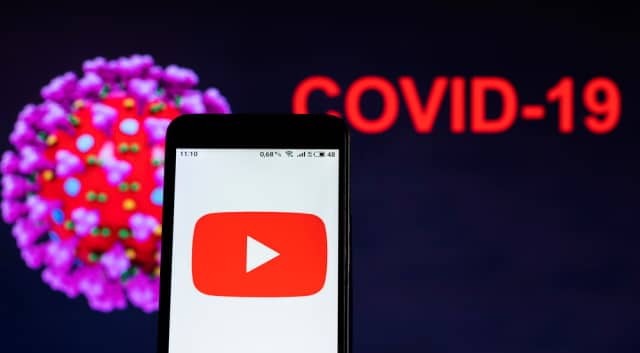YouTube is finally coming down hard on antivaxxer videos

As is the case with just about any big news story, particularly one relating to health, the coronavirus pandemic has led to a serious problem with misinformation. And as governments around the world try to encourage citizens to get vaccinations, so the antivaxxer movement has been trying to control the narrative surrounding the global crisis.
Conspiracy theories abound, and antivaxxers have had a field day casting doubt on the efficacy, purpose and safety of COVID-19 vaccines. Social media platforms have been fighting to ensure that incorrect or misleading information about vaccinations are either kept offline, or flagged up with warnings, and now YouTube has finally followed suit, implementing new rules that equate to a complete ban on antivax videos.
See also:
- How to install Windows 11 on any computer, even those without TPM 2.0
- How to sign into Windows 11 automatically
- Most people neither know nor care about Windows 11
The company points out that while its community guidelines already prohibited many kinds of medical misinformation, the need was felt to expand these rules in response to COVID-19. YouTube says that it works closely with health authorities to help strike a balance between being an open platform and also removing "egregious harmful content".
In a blog post about the changes YouTube says: "We've steadily seen false claims about the coronavirus vaccines spill over into misinformation about vaccines in general, and we're now at a point where it's more important than ever to expand the work we started with COVID-19 to other vaccines."
The company goes on to say:
Specifically, content that falsely alleges that approved vaccines are dangerous and cause chronic health effects, claims that vaccines do not reduce transmission or contraction of disease, or contains misinformation on the substances contained in vaccines will be removed. This would include content that falsely says that approved vaccines cause autism, cancer or infertility, or that substances in vaccines can track those who receive them. Our policies not only cover specific routine immunizations like for measles or Hepatitis B, but also apply to general statements about vaccines.
As with our COVID guidelines, we consulted with local and international health organizations and experts in developing these policies. For example, our new guidance on vaccine side effects maps to public vaccine resources provided by health authorities and backed by medical consensus. These policy changes will go into effect today, and as with any significant update, it will take time for our systems to fully ramp up enforcement.
There are, however, exceptions to the rules. YouTube explains: "There are important exceptions to our new guidelines. Given the importance of public discussion and debate to the scientific process, we will continue to allow content about vaccine policies, new vaccine trials, and historical vaccine successes or failures on YouTube. Personal testimonials relating to vaccines will also be allowed, so long as the video doesn't violate other Community Guidelines, or the channel doesn't show a pattern of promoting vaccine hesitancy".
While the policy change will be widely welcomed, questions remain about why it took YouTube so long to take this action.
Image credit: IgorGolovniov / Shutterstock
